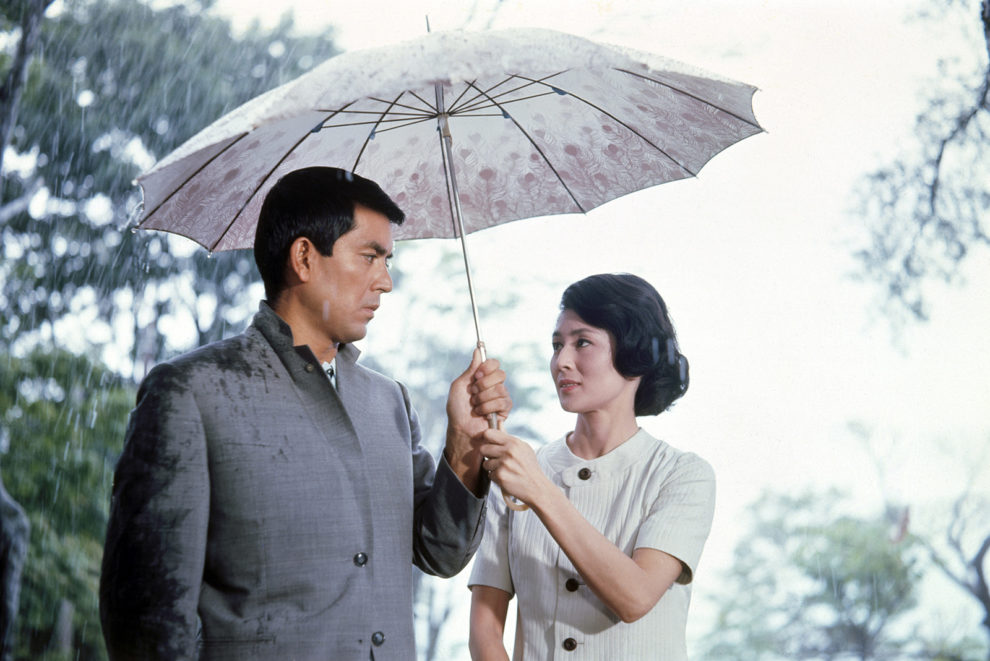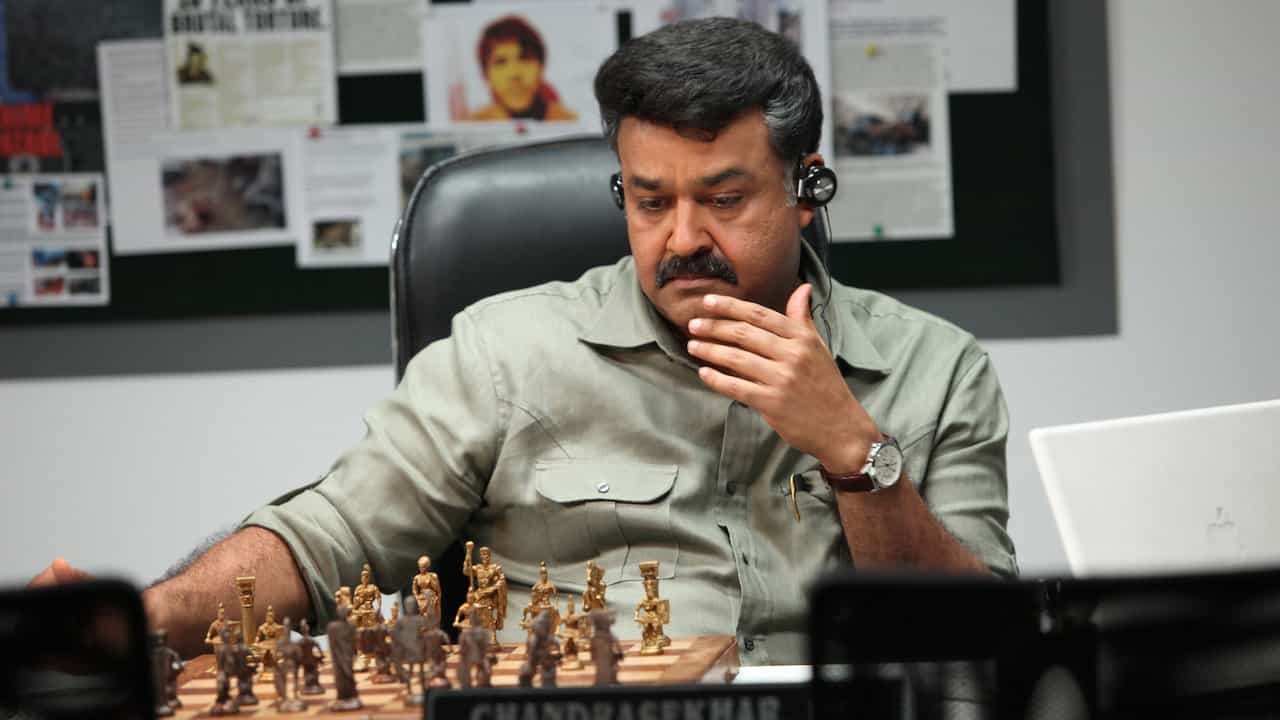Mikio Naruse solidified himself as one of Japan's most admirable filmmakers. His work is known for the pessimistic yet raw outlook on life, showing that the world is not a perfect place while focusing on human vulnerability. Much like Kenji Mizoguchi, he frequently gave women a voice in his work, notably working with beloved actress Hideko Takamine throughout his career. In addition, Naruse would sometimes create premises for narratives that sound surreal on paper yet would be executed wonderfully on film. Look no further than his final masterpiece, “Scattered Clouds,” also known as “Two in the Shadow.”
Released in 1967, this would be Mikio Naruse's final film, as he would later pass away in 1969 from cancer. His health was already declining when he made this movie, yet that didn't keep him down when directing this tragic love story. Fittingly writing the screenplay is Nobuo Yamada, who is no stranger to poignant storytelling. “Scattered Clouds” is one of Naruse's most popular works and is hailed as a high point in Japanese cinema.
A bright future is set for a woman named Yumiko, who is soon due with a baby and planning to depart to the United States with her caring husband Hiroshi, an employee of the Ministry of Economy. Unfortunately, tragedy strikes when her spouse is killed in a car accident. The car's driver, Shiro Mishima, shows immense regret and wants to help make amends by paying the widow monthly installments. Overcome with grief, she turns him down, drowned in complete heartbreak over the death of her significant other. Things only worsen for the lead when she has a miscarriage and is disowned by her late spouse's family. With no one to turn to, she eventually accepts Shiro's funds, moves back with family near Lake Towada, and finds work. There is, however, pressure for her to remarry. As the two leads heal with time and succeed in their professions, they coincidentally cross paths with each other again. Eventually, a surprising friendship forms between them, ultimately leading to them falling in love. Yet, the pain of the past catches up.
It is quite bittersweet that Mikio Naruse's final feature is among one of the bleakest works of his filmography. The story is beautiful and heartbreaking. Like many of his other works, Naruse weaves a poignant and haunting tale that never feels heavy-handed. He creates a touching romantic tragedy with one of cinema's rawest depictions of grief and sorrow. The narrative takes time to develop the two leads as they try to heal from the harrowing events at the movie's start, even giving them their own screen time before they eventually cross paths with each other again. Furthermore, their humanity is shown by the bond that ultimately forms between them, greatly enhanced by their surprisingly great chemistry. The excellent screenplay keeps things grounded, as the past tragedy shadows their connection, and it cannot be changed, leading to further sadness. Not even the gorgeous environments surrounding them can mask the harsh realities, leading to them eventually having to face them. Like the movie's characters, the audience must also come to terms with this.
The performances are outstanding, with the two leads being exceptional. Yoko Tsukasa is terrific as Yumiko. It is easy for the audience to feel the heartbreak and tragedy she is forced to endure. Yet, there is also likability to her character, and it is relatable to see her try and slowly heal with time. Her kind and sweet nature only make her sorrow ten times sadder. Yuzo Kayama plays her unsuspected friend/lover Shiro Mishima and is also fantastic. The story acknowledges and emphasizes the weight of his mistake yet doesn't villainize him because, at his core, Shiro is shown to be a kind human being and is similarly shown in a state of vulnerability. While at first surreal, this pair's unexpected chemistry is wonderful, adding to the heartbreaking drama that unfolds in the final act. Everyone else in the movie also performs well, with various recognizable talents present, including Mitsuko Mori, Mitsuko Kusabue, and Mie Hama. Also, popular actor Yoshio Tsuchiya notably plays Yumiko's late husband, Hiroshi.
Throughout his career, Mikio Naruse primarily presented his films in black-and-white, only directing a handful of color features. Yet, whenever he utilized color in his work, he did not disappoint, and “Scattered Clouds” is no exception. Yuzuru Aizawa's cinematography, from beginning to end, is outstanding. Another aspect of the movie worth highlighting is the beautiful music score composed by Toru Takemitsu. It balances being both elegant and haunting.
“Scattered Clouds” is a brilliant film and a wonderful swan song from director Mikio Naruse. The movie takes an unusual premise for a romance story and executes it perfectly. The excellent chemistry between the two leads further enhances the drama of this powerful piece of cinema. In the hands of a lesser filmmaker, this narrative could have turned out contrived and forced. Instead, Naruse does not disappoint and delivers a haunting tale of love and sorrow.
















